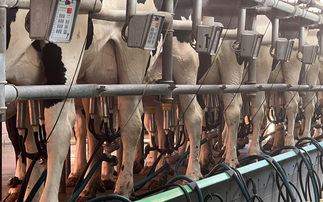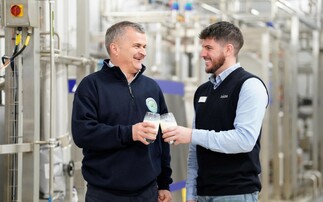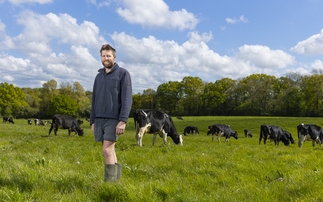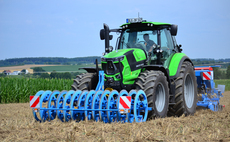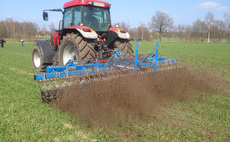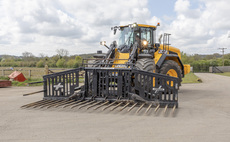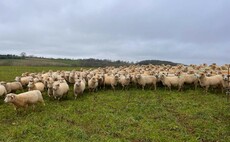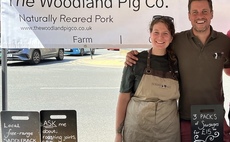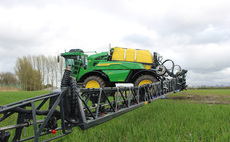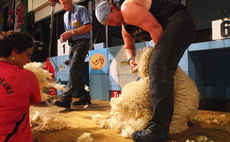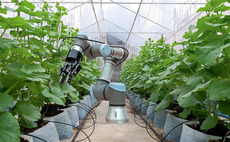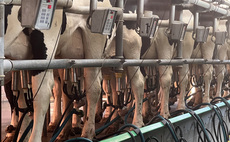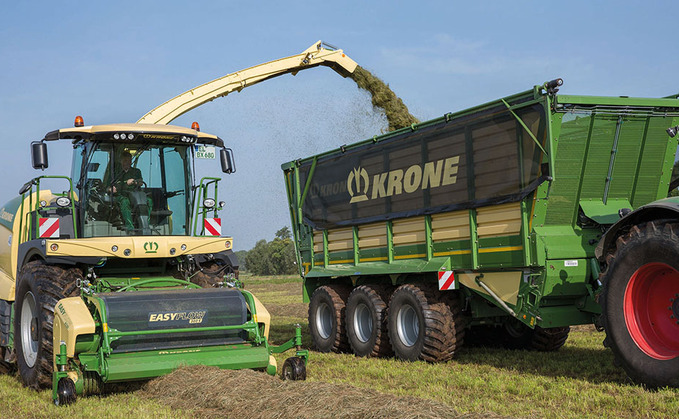
Ultra Low Volume application - for example where silage additive is applied at 20ml/tonne of grass compared to the usual 1-2 litres/tonne - could save considerable time at harvest.
Ultra Low Volume (ULV) silage additive application could decrease the hassle factor associated with lugging copious amounts of water to the field and reduce tractor down-time at silage-making.
All too often, keeping the forager topped up with silage additive can be a full-time job on traditional systems where additive is applied at 1-2 litres per tonne.
It can mean lugging IBCs of water to the field or bringing the forager back to the farm to top it up at the hose.
ULV application allows the dilution rate to be reduced considerably - so for example additive is applied at 20ml/t.
The same amount of additive or ‘silage bugs' are applied so the product cost stays the same.
All that changes is the volume of water added, explains Volac's Peter Smith.
"All we need to do is get the bugs on to the grass. The amount of water is irrelevant. It's merely a carrier for the product," he says
Forage harvester
Not all additives can be used at ULV (see key considerations box), but most large manufacturers will have a product which can be applied this way.
The forage harvester will also have to be set up for ULV using a specialist applicator, which can be retrofitted to most machines.
The ULV applicator allows the additive to be atomized, a bit like car paint spray, using the high wind speed in the chute of the forager.
In comparison, the traditional method uses droplet application.
With ULV, 20 litres of mixed Ecosyl will treat the same amount as 1,000 litres applied using the traditional method.
Peter Smith (pictured) says that ultimately ULV reduces the amount of time silage trailer tractor drivers have to wait for tanks to be topped up.
With drivers typically being paid by the hour, this down-time soon adds up.
It also means more acres can be harvested in a day, which can be a god-send in ‘catchy' weather.
"If you can remove the hassle out of any process, it is more likely to be done correctly"
Peter Smith
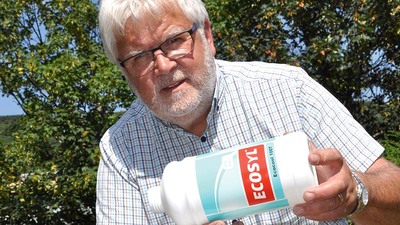
For farmers, it frees up time to do other jobs during silage-making.
The fact the silage additive job is easier in the field also means they can have increased confidence it is getting done right.
"If you can remove the hassle out of any process, it is more likely to be done correctly," Mr Smith adds.
The effectiveness of application is also consistent between methods.
Ten trials carried out in the UK and Germany looked at the different application methods using Ecosyl.
It was applied at 20ml/tonne or 1.5 litres a tonne.
"The evenness of spread of bugs through the crops was if anything slightly better using Ultra Low Volume," says Mr Smith.
How foragers can be adapted to be ULV
- ULV kits can only be used on forage harvesters, not balers or forage wagons
- ULV kits can be retrofitted to most self-propelled foragers or bought already in-built into new machinery
- Volac's Ecosyler ULV system can be retro fitted to any self-propelled forage harvester. It has a RRP of £995
- All wide bodied Krone foragers are available with a ULV option. This can be in-built in new models at a cost of around £1,755
- Krone ULV systems can be linked to a crop control system which measures grass silage yields so additive can be applied at a certain volume per tonne












